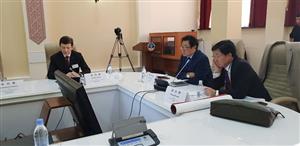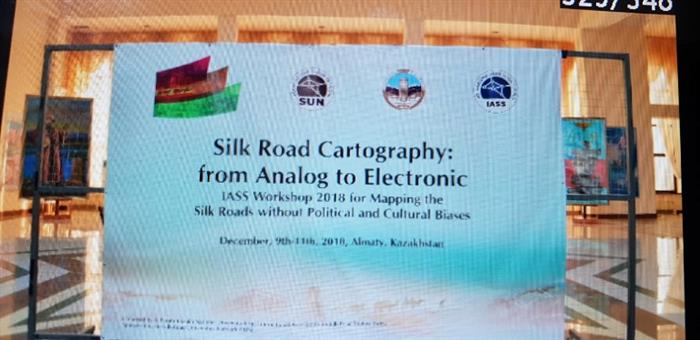- Main page
- News
Silk Road Mapping
12/12/2018
On December 10, an international conference dedicated to the Great Silk Road "Silk Road Mapping: from analog to electronic" was held at Al-Farabi Kazakh National University.
The organizers were the Kazakh National University named after Al-Farabi and the International Association for the Study of the Silk Road (IASS).
S. Mukhambetzhanov, Director of the Department of Science and Innovation of the Kazakh National University, Professor H. Hwang of the University of the Silk Road Network, Professor Hermann Kim, International Association for the Study of the Silk Road (IASS), addressed the conference participants with a welcoming speech. such conferences, where scientists from different countries can share their research on the modern development of the Great Silk a way that will enhance mutual understanding and trust between people belonging to different nationalities and religions, and it will serve as a guarantor of peace and security in our common home - planet Earth.
During the passage of the international conference, questions were considered on the experience of digital satin mapping, remote sensing technology, the creation of a geospatial database of the Kazakhstan part of the Great Silk Road and adjacent cities and the expansion of Turkic peoples in the world.
During the panel discussion, Dr. Sang-hong Chang, Director of the National Museum of Korea, presented the Silk Road maps on Korean territory, in turn, scientists from Russia, Kazakhstan, Uzbekistan, Tajikistan, Kyrgyzstan, in their presentations focused on passing the geographical belt of the Silk Road, about the need to expand research and innovative approaches in exploring many aspects in the framework of cooperation.
Within the framework of the conference, it was decided to organize the next conference in one of the Asian countries of the near abroad, where it is planned to gather all representatives of universities and scholars involved in the Silk Road issue for joint efforts to create electronic maps in the Euro-Asian space.
Conference participants expressed their gratitude to the Kazakh National University for support in organizing the conference and for the hospitality provided.

